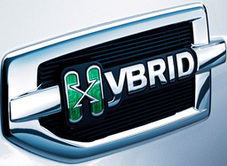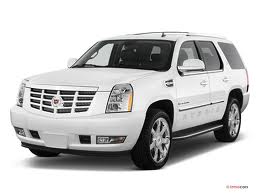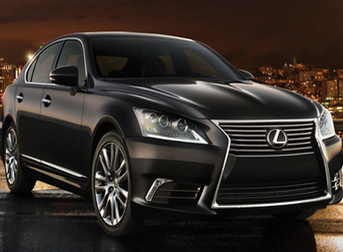
Buying hybrid cars can be interesting because the competition is fierce and the choices are many. These are also some of the most talked about vehicles on the road today. More than smart cars, more than ultra subcompact models, hybrids garner the interest of consumers, the news media and automakers alike.
What makes hybrids so hot or not for everyone? On what should you exactly base your purchase decision on? What should you look for to ensure you purchase the right hybrid vehicle with the right options? Here are a few answers to those questions and more. Note that only one hybrid made the road fly top ten Best Green Cars of 2012 list (video below) so maybe you don’t want or need one at all?
If you closed your eyes and tried to picture a hybrid automobile you would most likely imagine a small or strangely shaped vehicle such as the Toyota Prius, or maybe the old Honda Insight. Thankfully today and going forward your options are not so limited.
You’ll find that there are numerous styles of hybrid available for your needs. Several American automakers have released full size sedans in hybrid form as have several import companies.
The Luxury hybrid segment is filled with the most popular models offering a blended electric gas power train to boost fuel economy and price at the same time. While Honda was planning on phasing out their Accord hybrid they decided to keep it around to compete with others in its class.

Some automakers are stepping up their production to assure a good stocking level to meet demand for the usual summer gas increases expected to peak in late august. If you are the kind of driver that prefers full-size SUVs, mid-size SUVs, trucks all of the big automakers will have something to offer you.
Whether you need to haul your family of four around or need room for just you, the options in this quickly growing and competitive market is fantastic. Why not get the King of sport utilities the Cadillac Escalade in a hybrid version with highway fuel economy in the plus 20 MPG range.
Meet the Next Generation Hybrids
The traditional picture of a hybrid is an underpowered car, with little room for cargo or passengers. Today’s models are available with a wide array of different engine sizes teamed up with more powerful electric motors.
V8 options, V6 and, of course, four cylinder engines are available. In addition, these engines are just as powerful as their non-hybrid counterparts are. Keep in mind non-hybrids do offer considerable fuel saving technology of their own. Many engines offer variable cylinder operation that can save you fuel no matter where you’re driving.
For instance a V8 engine may shut down three cylinders when they are unneeded, while a V6 may perform similar actions. Car builders are building low resistance engine that spin easier and use Mobil 1™ 0W–20 Advanced Fuel Economy synthetic motor oils. This allows you to have all the power that you need, and still attain the savings that you want without electric power or carrying heavy batteries. This is why you have to crunch the numbers (more on this below).
Each offering will have slightly different hybrid technology under the hood. While most are very similar some are drastically different like the Chevrolet Volt. This little car uses series technology which is a fancy way of saying that the on board gas engine never actually drives the wheels.
The internal combustion engine is used to charge the batteries on the fly thus increasing the range. Choosing the right technology often means doing a massive amount of homework on the available brands and styles of hybrids today. Perhaps the Toyota Prius is the best choice for your needs.
They are now available in different models including the new Prius C model. Maybe you want to buy American? Ford and Chevrolet have competitive options available! Picking out the right hybrid means understanding your own needs just as much as it means doing research on available models. For instance do you really need an SUV? Would a subcompact model offer you just as many benefits? How much does your desired model cost?
The final thing you need to understand about buying hybrid cars involves the cost versus the ROI (return on investment), because hybrids are more expensive than traditional vehicles.
It’s said that some models would have to be driven a full 8 years to reach the break even point. I think this will be less as we move forward and the gap closes between prices of traditional cars. However, some more closing thoughts come to mind.
Just because these automobiles offer you savings in fuel consumption the maintenance cost could be more in the second phase of the its life cycle, we just don’t know enough right now.
Another important point is your personal usage will dictate just how much money you save in terms of fuel. If you buy a Volt and drive around 20 miles a day you won’t use any gas.
Let me throw some numbers at you that I stumbled onto while researching for this article. On average a hybrid will save you around 20% of your annual fuel consumption. This is not tremendous number in my opinion, but it is not insignificant.
Some models like the Toyota Camry hybrid come in around 20% higher in price then the standard car. The ultimate luxury versions can be huge dollars and gas mileage numbers shockingly poor. As an example Look at the Lexus LS Hybrid below on the right. Its sticker comes in around $120K yet only pulls down 19 mpg city and 25 on the highway.

If you go for it do the math. Find out the break even date. Then say to yourself can I keep a car this long. Remember that many hybrid models only offer real savings for in-city driving. When you get them on the highway, their fuel consumption can be very close to any other vehicles.
Another fact is some hybrids have lengthy engine warm-up time prior to attaining optimum fuel efficiency. If you make short hops in town, this can negate any savings on fuel consumption.
In addition many states plan on imposing a special tax on sales of hybrid vehicles to cover deficits in gas tax revenue. This will have to be factored in, as well as any tax reductions offered on your income taxes each year. In short purchasing a hybrid vehicle means understanding the many different costs involved both in the purchase and in ownership. Give this buying hybrid cars resource page a share or bookmark.
See Mark Gittelman’s Awards & ASE Certifications on Google+.
Before you start buying hybrid cars watch this
I happen to have a lot to say on this buying hybrid cars subject. In fact it’s not all good. This next link takes you to my opinion page and more articles about the hybrid car. The home page is a great place to find out what else is covered on this website. You can also learn more about the car mechanic that built it. This next link takes you to auto-facts.org.
